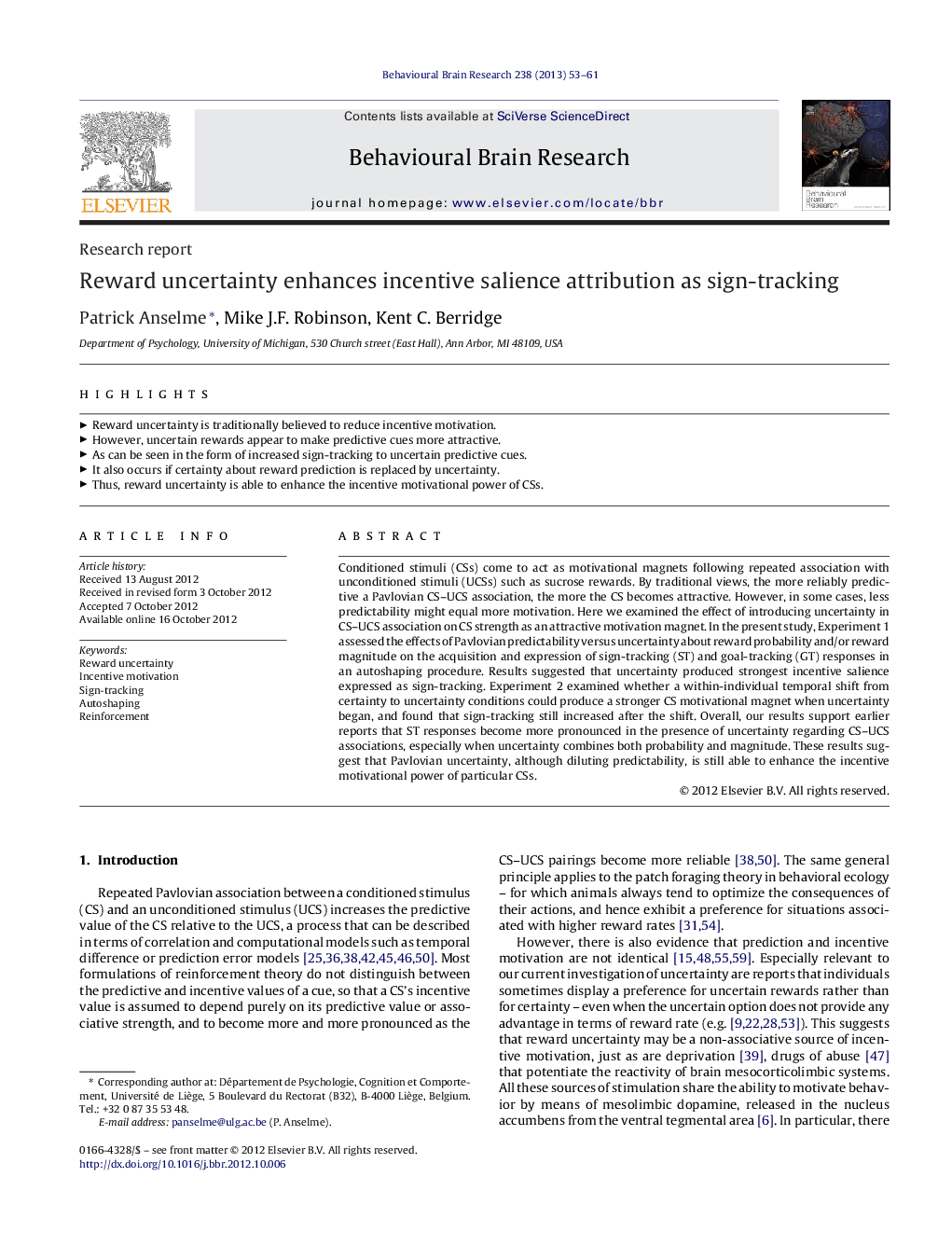| Article ID | Journal | Published Year | Pages | File Type |
|---|---|---|---|---|
| 4312908 | Behavioural Brain Research | 2013 | 9 Pages |
Conditioned stimuli (CSs) come to act as motivational magnets following repeated association with unconditioned stimuli (UCSs) such as sucrose rewards. By traditional views, the more reliably predictive a Pavlovian CS–UCS association, the more the CS becomes attractive. However, in some cases, less predictability might equal more motivation. Here we examined the effect of introducing uncertainty in CS–UCS association on CS strength as an attractive motivation magnet. In the present study, Experiment 1 assessed the effects of Pavlovian predictability versus uncertainty about reward probability and/or reward magnitude on the acquisition and expression of sign-tracking (ST) and goal-tracking (GT) responses in an autoshaping procedure. Results suggested that uncertainty produced strongest incentive salience expressed as sign-tracking. Experiment 2 examined whether a within-individual temporal shift from certainty to uncertainty conditions could produce a stronger CS motivational magnet when uncertainty began, and found that sign-tracking still increased after the shift. Overall, our results support earlier reports that ST responses become more pronounced in the presence of uncertainty regarding CS–UCS associations, especially when uncertainty combines both probability and magnitude. These results suggest that Pavlovian uncertainty, although diluting predictability, is still able to enhance the incentive motivational power of particular CSs.
► Reward uncertainty is traditionally believed to reduce incentive motivation. ► However, uncertain rewards appear to make predictive cues more attractive. ► As can be seen in the form of increased sign-tracking to uncertain predictive cues. ► It also occurs if certainty about reward prediction is replaced by uncertainty. ► Thus, reward uncertainty is able to enhance the incentive motivational power of CSs.
